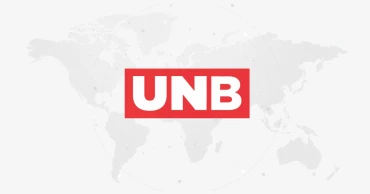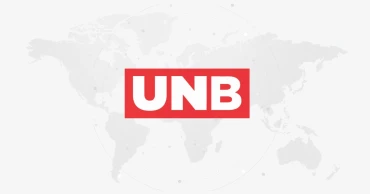World Bank loan
Bangladesh wants low-interest loan from World Bank amid economic woes
Finance Minister AHM Mustafa Kamal on Sunday sought extensive concessional loan from the World Bank to help Bangladesh weather the economic shocks caused by Russia-Ukraine war and the Covid-19 pandemic.
Kamal sought the assistance from the International Development Association (IDA), the soft-lending widow of the bank, during a meeting with the visiting World Bank Vice President for the South Asia Region Martin Raiser at Secretariat office, the ministry sources said.
Abdoulaye Seck, WB’s newly designated country director for Bangladesh and Bhutan, was also present at the meeting.
Read more: Bangladesh's strong growth could be at risk without urgent climate action: World Bank
The WB officials arrived in Dhaka on Sunday on a 3-day visit to discuss Bangladesh’s request for a new loan to tide over the current economic woes and economic reforms.
The visit takes place close on the heels of the International Monetary Fund (IMF) agreeing to lend $4.5 billion to Bangladesh as the country strives to stabilize its declining foreign exchange reserves and the balance of payments.
During the visit Raiser will also meet Prime Minister Sheikh Hasina and other senior government officials.
Before the visit Raiser said, “I am glad to be back in Bangladesh and to continue discussing with the government the important reforms that can help the country stay on the resilient and inclusive growth path and create opportunities for the people,”
The finance minister thanked the World Bank for working on a Technical Assistance project named “Beautification of Dhaka” to ensure environmental restoration and navigability of rivers around Dhaka city and to enhance the beauty of Dhaka.
Kamal also discussed the progress of various projects under implementation with World Bank loan assistance.
Read more: World Bank Vice President Martin Raiser arrives Saturday
Bangladesh has received $1.0 billion in budget support from 2019 to April 2022. It is expected that another $500 million in budget support will be available in the current financial year. Green, Resilience, Inclusive Development (GRID) DPC is expected to get 500 million in the next 2 fiscal years, he said.
A loan proposal of $6.15 billion is in the pipeline for the period 2023-2025.
Kamal termed the World Bank as one of the important development partners of Bangladesh adding that since 1972, Bangladesh has received $37 billion in loan and grant assistance from the World Bank.
“Of which $26.6 billion have been remitted. We have paid $6.36 billion in interest and principal so far,” he added.
Fatima Yasmin, Senior Secretary of Finance ministry, Sharifa Khan, Secretary of the Economic Relations Division, Guangze Chen, Regional Director, and Dandan Chen, Acting Country Director of World Bank, were present at the meeting.
3 years ago
World Bank loan to bolster Bangladesh's economic growth
Bangladesh and the World Bank have signed a $250 million financing agreement to support the country’s reform efforts to sustain growth following the pandemic and to enhance resilience to future shocks, including climate change.
The Bangladesh First Recovery and Resilience Development Policy Credit — the first in a series of two credits — will help Bangladesh build a stronger fiscal and financial sector to sustain growth, the World Bank said in a release.
The credit is from the World Bank’s International Development Association (IDA), which provides concessional financing, has a 30-year term, including a five-year grace period.
It will help streamline the bank recovery framework with all scheduled banks to update recovery plans annually.
Read: Deal signed with World Bank for $250 million towards post-pandemic recovery
The programme supports the legislative framework on payments, which will contribute to a more efficient financial system.
The programme supports adjustments to the interest rates of public savings instruments such as the National Savings Certificate.
Mercy Tembon, World Bank Country Director for Bangladesh and Bhutan, said that Bangladesh has made a robust economic recovery from the pandemic.
“This programme will further support the government’s policies to make the economy more resilient and competitive as Bangladesh strives to become an upper-middle income country by 2031.”
The cancellation of 8,451 MW of investments in coal-fired electricity generation projects will accelerate the country’s transition to decarbonisation and a green economy.
The revised National Building Code will help the country reduce greenhouse gas emissions by improving energy efficiency in buildings.
Read: World Bank projects Ukraine's economy to shrink by 45 pct this year
The programme will support the National Tariff Policy to modernise taxes and foster a globally competitive export industry. It will help to better leverage digital technologies and enable non-resident firms to submit VAT returns, according to the World Bank.
The increased coverage of the electronic government (e-GP) system will improve efficiency of public procurement.
It will also support the coverage, speed, and efficiency of social protection programmes to help the government rapidly respond to extreme climate events such as floods and cyclones.
By using the government-to-person payment platform for cash transfers, the government can identify new and existing beneficiaries for emergency assistance while also capturing gender-disaggregated payment data.
3 years ago



